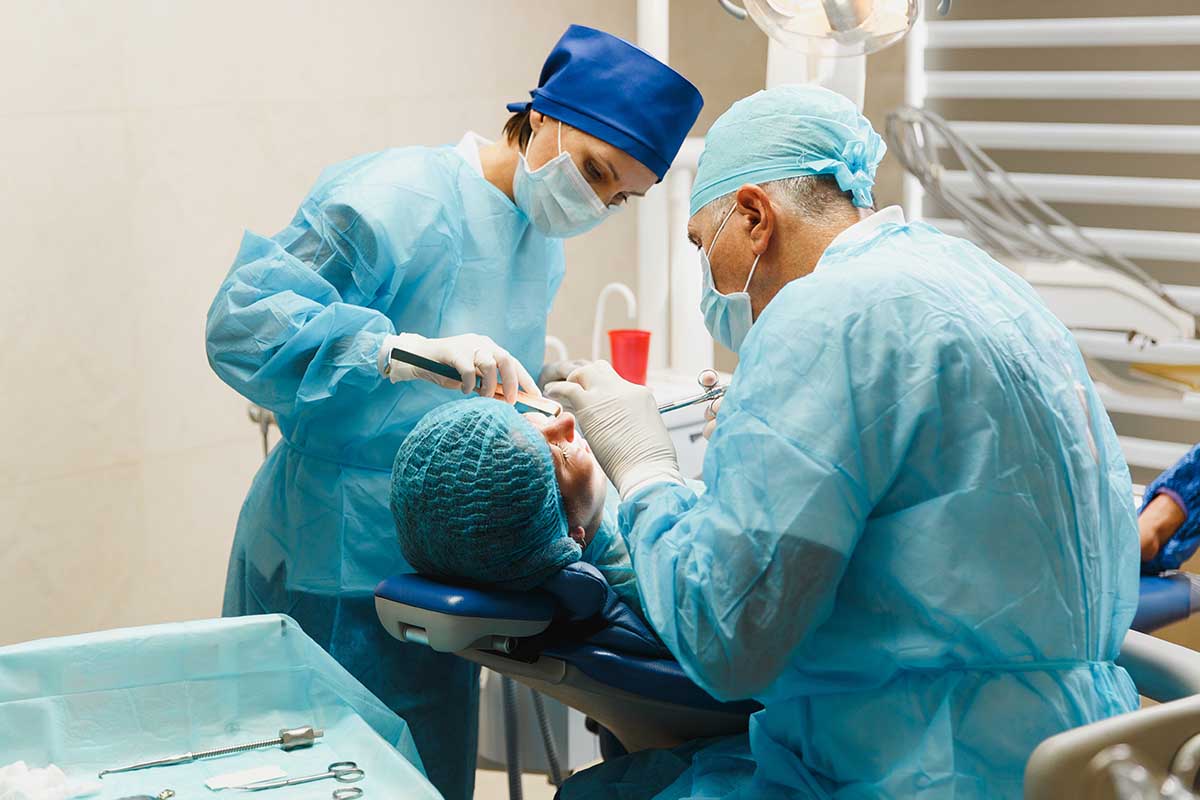When you go to the dentist for a check-up or toothache, you don’t want to hear that you need dental surgery. Worse yet, if it’s for a dental procedure your general dentist doesn’t handle, they may refer you to an oral surgeon you’ve never meant before. Although this news might get your blood pressure up momentarily, you trust your dentist to put you in good hands. Some dental professionals safeguard their clients further by hiring SleepGuardian to administer anesthesia for dental surgery in Virginia.
Common Procedures for Oral Surgery
Your dentist may refer you to an oral surgeon for a number of procedures, including the following:
- Tooth Extraction: You may need to have a tooth pulled due to overcrowding, trauma, or disease. At some point, most people have to have their wisdom teeth pulled as well. If the tooth lies above the gum line, your dentist will probably pull it in the office. However, if the extraction requires the removal of bone or tissue, you may need oral surgery.
- Prosthodontics: This category of dental treatment involves reshaping teeth for veneers, crowns, bridges, and implants. The oral surgeon may insert implants to hold a single tooth or partial or full dentures.
- Oral and maxillofacial surgery: Oral maxillofacial surgeons perform complicated procedures such as bone augmentation, nerve repositioning, jaw surgery, and dental implants.
What Is Dental Anesthesia?
Dentists and oral surgeons rely on anesthesia to make procedures comfortable for their patients. Under anesthesia, you lose sensation in the area impacted by the surgery. However, you may undergo anesthesia with or without remaining conscious. Today, there are several options available for dental anesthesia, including pills, injections, and gas options. If you have anxiety about going to the dentist, you’ll be amazed at what the right anesthetic can do for you.
There are three types of anesthesia: general, local, and sedation, and general. They are used alone or together, as determined by the dental anesthesiologist. Many dental professionals rely on physicians from SleepGuardian Anesthesia to administer the anesthesia. This lets your dentist or oral surgeon focus on the procedure, leaving the anesthesia to the experts.
Factors Impacting the Use of Dental Anesthesia
Different kinds of anesthesia work in different ways, with some forms numbing the area almost immediately and others requiring several minutes to take effect.
Factors impacting how dental anesthesia works include the following:
- Individual factors
- Which drug is used
- Part of the mouth treated
- Procedures used to administer it
- Timing of the procedure
For local anesthesia, lower teeth (mandibular) are more difficult to anesthetize than upper teeth (maxillary).
Learn More About SleepGuardian
SleepGuardian provides physician anesthesiologists to administer dental anesthesia. Feel free to browse through our dental FAQs to learn more about our services.
We offer assistance with anesthesia for dental procedures such as the following:
- Extractions
- Fillings and root canals
- Implants
- Crowns and bridges
- Deep cleaning
- Restorative work
- Cracked teeth
Recovering from Oral Surgery
Like other surgical procedures, oral surgery requires a recovery period. Your oral surgeon will explain what types of food you might want to avoid during the healing process. For example, an extraction often takes several days to heal, ao your dental provider may prescribe pain medication or suggest an over-the-counter alternative.
Follow the instructions provided by your dentist or oral surgeon closely to avoid infection and other complications.
Oral Surgery in Virginia
Your dentist wants to provide the best dental care possible. Therefore, they may partner with SleepGuardian to provide dental anesthesia during your procedure. We proudly serve clients in Falls Church and Richmond, Virginia, and the Washington, D.C. area. If you have questions on any of our services, feel free to call us at (866) 256-1146 for more information.







